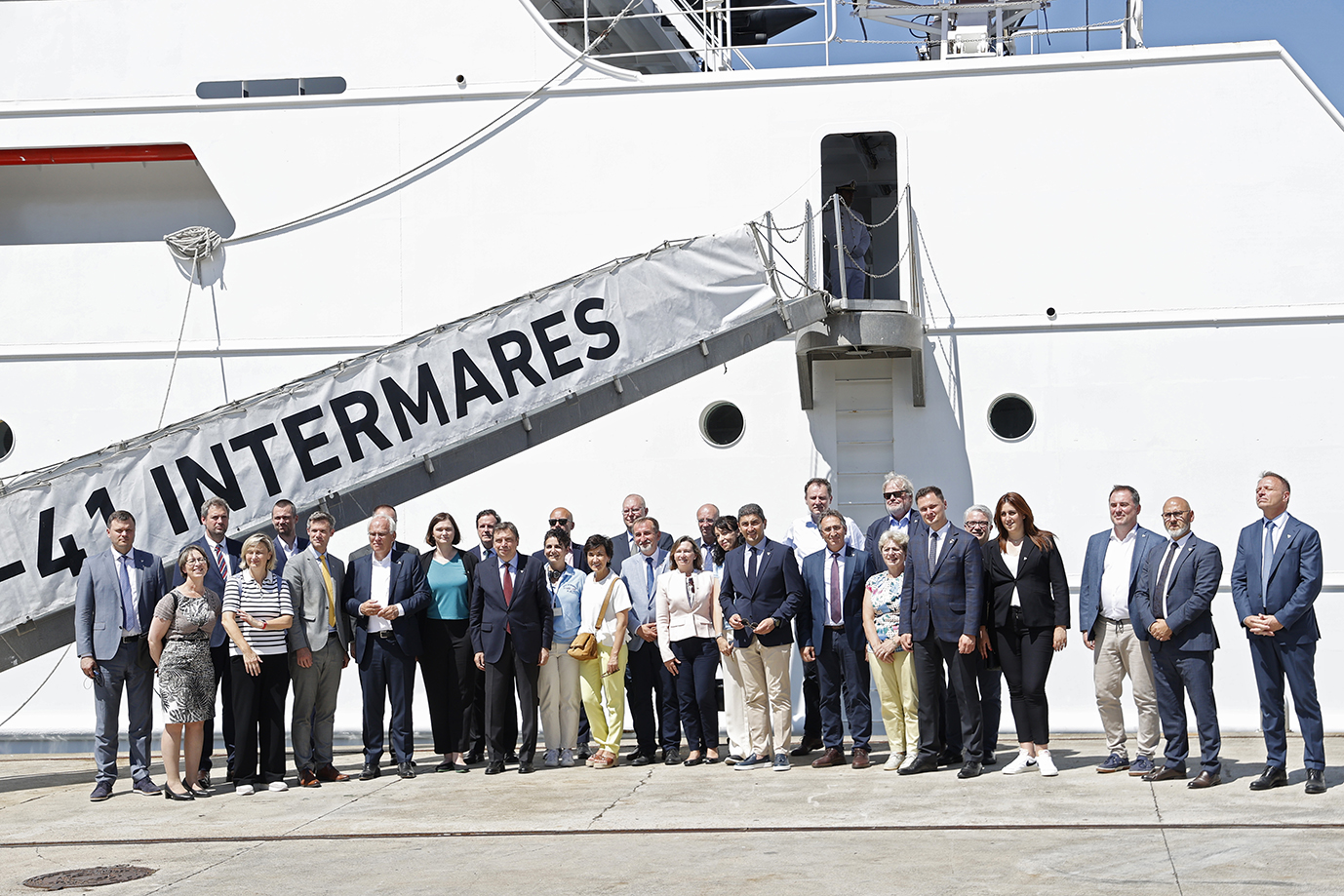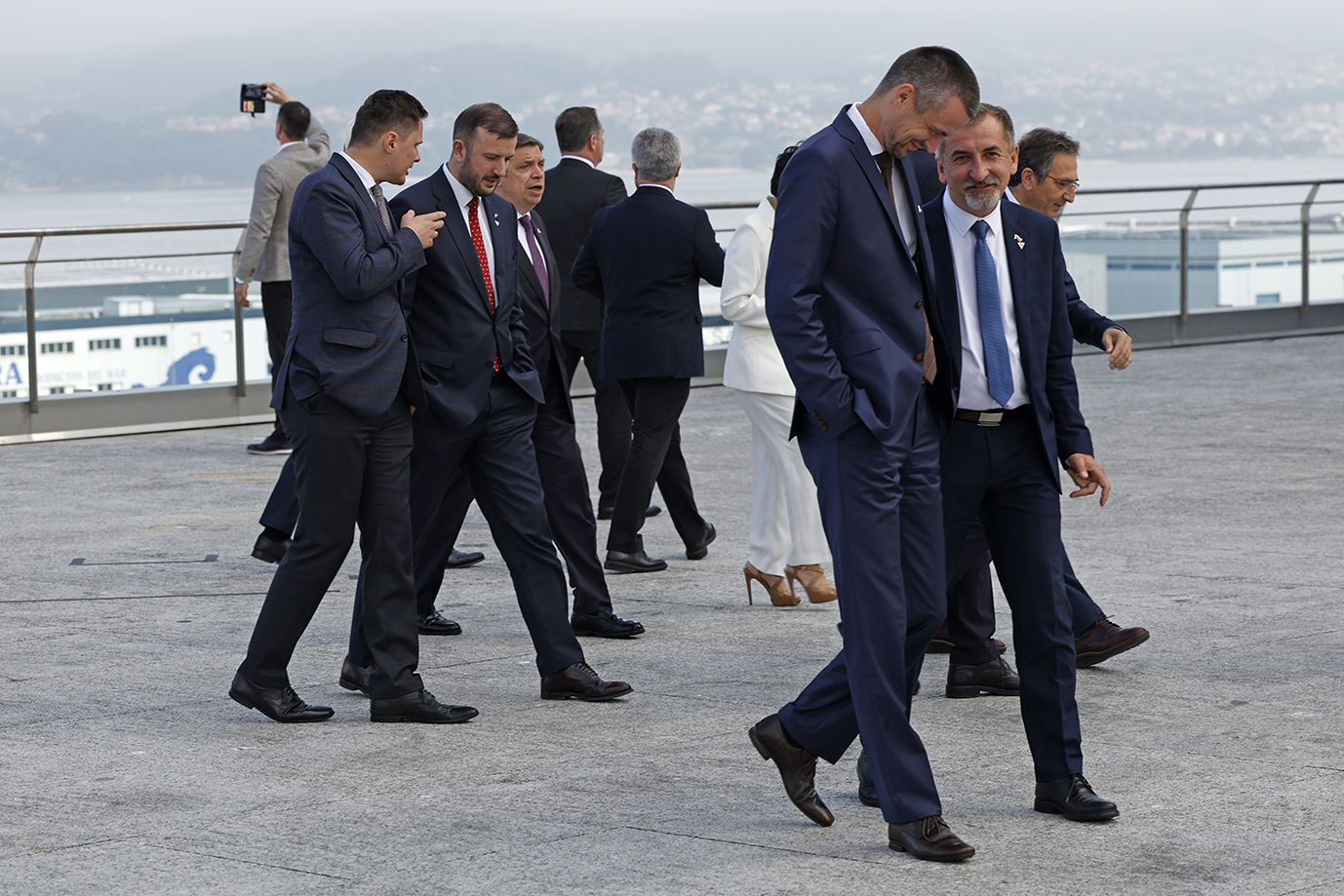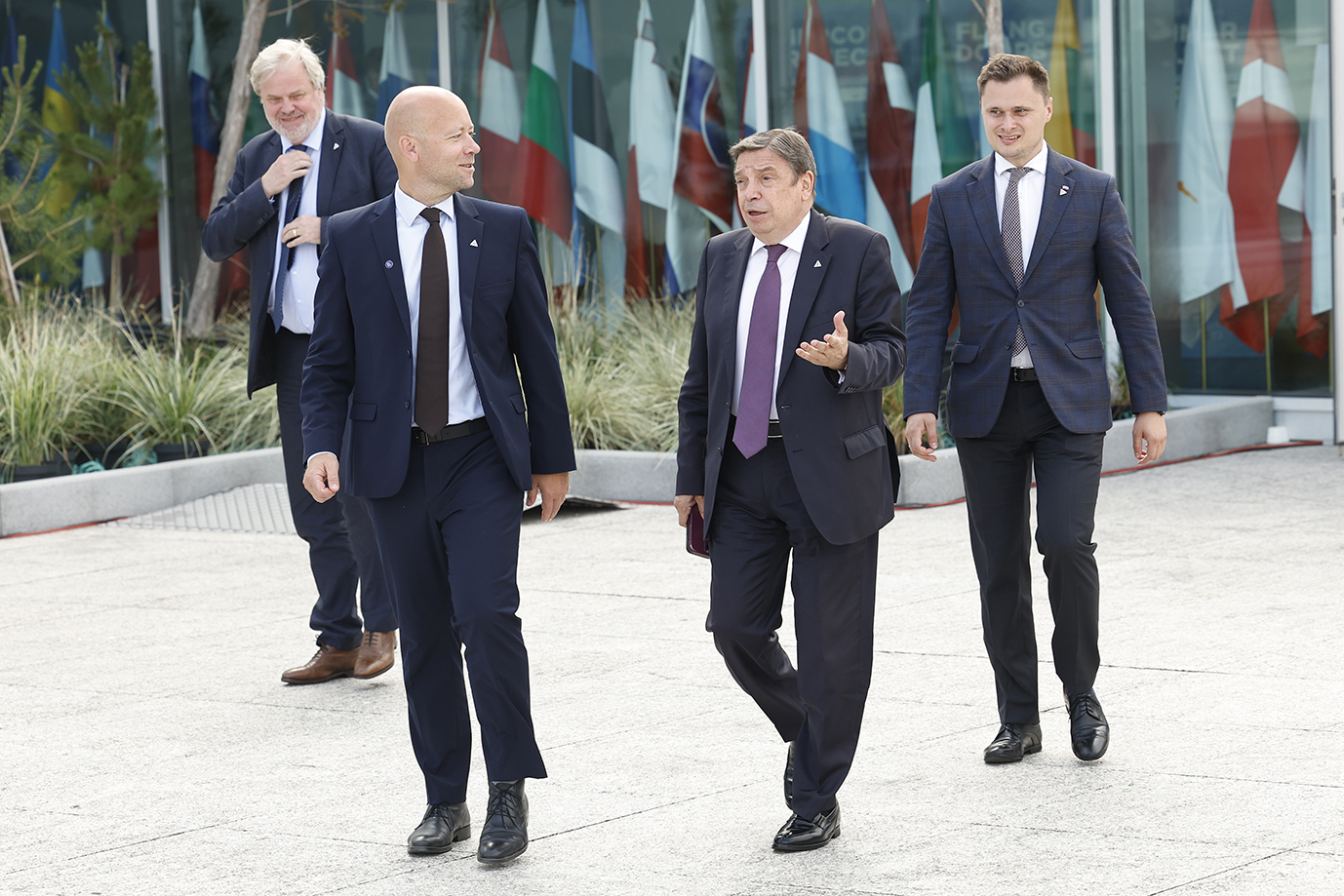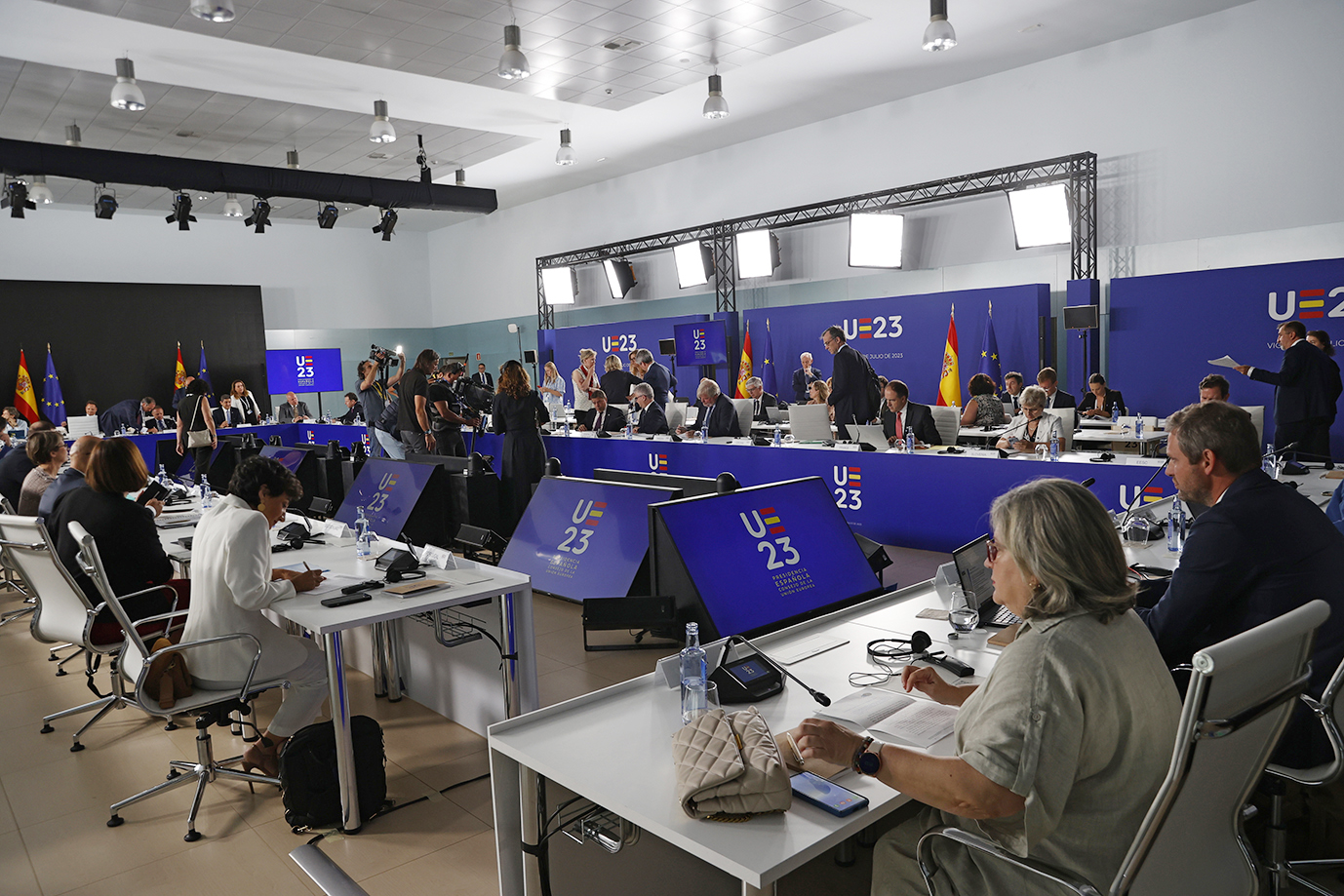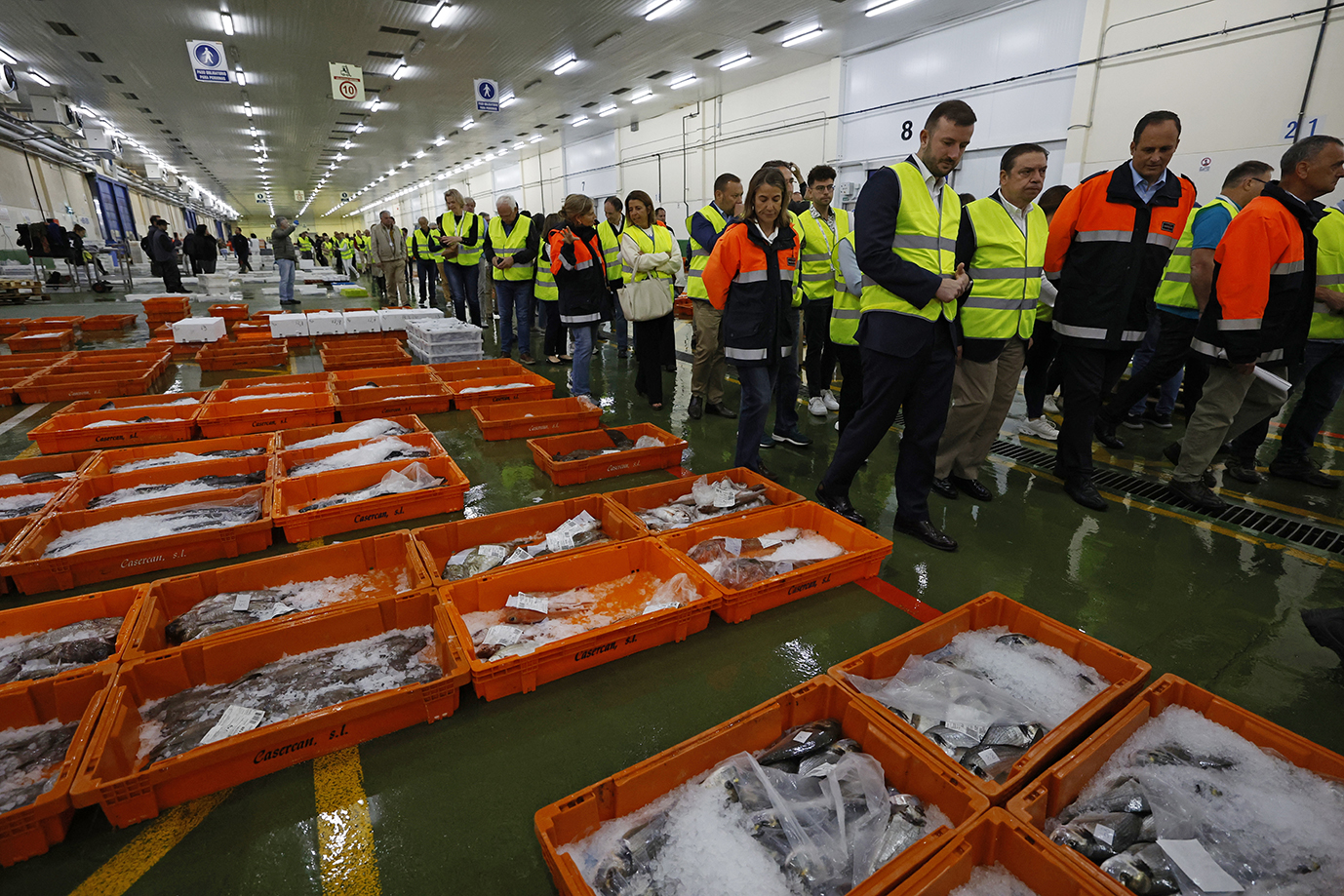Spain: the Informal Meeting of the EU Fisheries Ministers
20.07.2023
The theme discussed at the meeting in Vigo, Spain, was the energy transition, including emissions abatement in the fisheries sector and its decarbonisation. The aim was to work out a model for assistance to the European fleet and aquaculture in order to enable them to overcome one of the challenges of the European Green Deal, i.e. to stop producing net greenhouse gas emissions by 2050. Poland was represented by Undersecretary of State Krzysztof Ciecióra.

The two-day Meeting of the EU Fisheries Ministers took place in Vigo, Spain. It was convened by the Spanish Presidency.
The most important objectives of the discussion
During the main plenary sitting, its participants discussed decarbonisation. The main theme to be addressed in the discussion was investments for the sustainable development of the fisheries sector: The commitment to emissions abatement.
During the working session of the plenary sitting, its participants focused on defining the common objectives necessary to make progress in the process of decarbonising the Community fisheries and aquaculture sector.
The main objective was to work out a model for assistance to help the European fleet and aquaculture to gradually adapt to environmental sustainability in order to overcome one of the challenges of the European Green Deal, i.e. to stop producing net greenhouse gas emissions by 2050, and to make this compatible with their socio-economic profitability.
The energy transition
“We stress the importance of the energy transition, which, in addition to a reduction of the impact of fisheries on the marine ecosystem, also aims to decrease the use of fossil fuels. Their prices grew as a result of Russia’s aggression against Ukraine,” the Deputy Minister of Agriculture and Rural Development said, presenting the position of Poland.
In his speech, the Undersecretary of State also addressed the Communication from the European Commission on the energy transition. He pointed out that it contained no specific proposals for the replacement of fossil fuels.
“The development of an appropriate technology is a long-lasting process and this can make it impossible to quickly achieve ambitious results. Electric engines, which are increasingly often used in automotive transport, are not a solution which could be applied on fishing vessels,” Deputy Minister Krzysztof Ciecióra stated.
The Undersecretary of State stressed that we should not forget, either, to protect small-scale fisheries in the process of energy transition, since it would be a large challenge for them. He also pointed out the extent of the fishing capacity available and so far unused in Poland which would not enable the modernisation of vessels in a manner meeting the requirements of the energy transition.
“Therefore, it seems necessary to consider an enhancement of the fishing capacity of the individual Member States provided that this capacity would only be used for the purposes of this transition,” Deputy Minister Krzysztof Ciecióra assessed.
Funding for the energy transition
In respect of the issue of the funding for the whole undertaking, the Deputy Minister stressed the need for the EC to facilitate access to the funding for the energy transition from the resources of the European Maritime Fisheries and Aquaculture Fund (EMFAF).
“The inability to use the resources of the Fund, also by those segments of the fleet that are not sustainable, can have an adverse effect on its effectiveness,” the Undersecretary of State noted.
Common conclusions
Deputy Minister Krzysztof Ciecióra stressed that the achievement of the energy transition and decarbonisation would undoubtedly be a large challenge for the Polish fleet and the aquaculture sector.
27 EU representatives for fisheries presented their views on the challenges facing the sector. The participants in the discussion managed to a reach a broad consensus on the need to make progress in the implementation of the set out decarbonisation objective, They assessed, however, that a further discussion was needed on the issue of how to overcome the challenges posed by funding for new vessels and the present constraints on the fishing capacity.
The other activities and events
The agenda also included field visits, making it possible to see the work in the Spanish fisheries sector. Together with other EU Fisheries Ministers, the Deputy Minister participated in a working visit on board the Training Vessel “Intermares” at the Vigo port and in a visit to the La Lonja de Vigo Fish Market.
Participants
The meeting was chaired by Mr. Luis Planas Puchades, the Spanish Minister of Agriculture, Fisheries and Food. Its participants included 27 representatives of EU Member States, Mr. Virginijus Sinkevičius, EU Commissioner for the Environment, Oceans and Fisheries, and Mr. Pierre Karleskind, Chair of the Committee on Fisheries of the European Parliament.
The representatives of nongovernmental organisations, including the European Association of Fish Producers Organisations (EAPO), the Federation of European Aquaculture Producers (FEAP) and the European Network of Women in Fisheries and Aquaculture (AKTEA), were also present.

